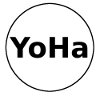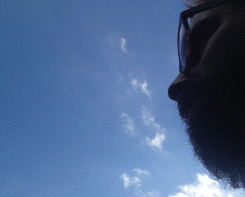- Wasted
- Plastic Raft
- Wrecked
- Database Addiction
- Endless War
- Evil Media Distribution Centre
- Invisible Airs
- Coal Fired Computers
- Database Documentry
- Aluminium
- Lungs
- MF2012
- Requiem for Cod

Marine Festival
Eating and Smoking the Flowers of the Thames
27th July Marine Festival Leigh on Sea
Yoha invites you to smoke, eat and monitor the Thames estuary. We are preparing to vaporise the estuary into your lungs by filling e-cigs with flavours and flowers of the river. An airborne interface that physically belong to the molecular scale, using aerosols and midst to dive into the sensorial experience that occurs naturally in the thin membranes of many see-plants. Fran Gallardo will be offering visitors a taste of grassland’s and the salt marshes sweet delicacies collected from Two Tree Island - a former municipal tip that will nourish your desire for Essex in all it's wild abandon; Tom will introduce delightful methods for DIY essential oil stilling from local flora; and Andy will present upcoming citizen science and monitoring initiatives to help save his home in Southend-on-sea from flooding. The group will be at the Leigh on Sea Marine Festival, Sunday 27 July, 11am-6pm (train from Fenchurch street) This is a pre-event for the forthcoming project “Wrecked in the Intertidal Zone”.
This endeavour is led by YoHa and The Arts Catalyst, involving a network of local peoples knowledge mixed up with international and UK based artists and technologists who are responding to a troubled Thames Estuary and in its surrounding salt-marsh - aka UK's most productive ecosystem. Its marsh, tidal flats and mud waters are critical wilderness zones for biodiversity conservation and species migration. Simultaneously, they are also interpreted as infrastructures for leisure and tourism, historic brown-fields, a container port or a potential airport. By fostering an ecology of practices, this project aims to generate a critical interest in the complex influences governing these delicate environments.
Through a series of public artworks, participatory workshops, and social media outlets, Wrecked in the Intertidal Zone will profile ways of structuring information from both local, situated knowledge (bird watchers, fisherman or mud-walks), as well as from verifiable methods (monitoring networks and ambient sensors). In doing so, we seek to engage critically with investigative yet playful forms in which the estuary can flourish and thrive.

- By frangallardo at 17 Jul 2014 - 9:13am
 bnr#88 =>
bnr#88 =>